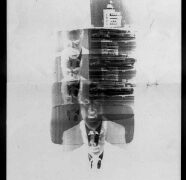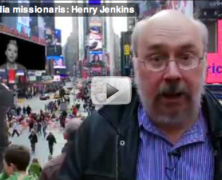Radio Alice was a free radio station in Bologna from 1973-1977. Rathr than attempting to objectify events in the world, they set out to create a flow of sounds, information, messages and poetry, silences and abuse. Like the manifestations of Dada, transmissions were seen as immediate cultural subversions. Bifo, who worked on Radio Alice was interviewed by Carlos Ordonez at the recent conference on Autonomy (’After Marx, April’) in London. The interview was conducted in English. The autonomia movement in Italy during the seventies emerged from the new proletariat of disaffected and unemployed youth, workers and intellectuals creating a radical opposition to institutional politics. ‘Autonomy has no frontiers. It is a way of eluding the imperatives of production, the verticality of institutions, the traps of political representation, the virus of power. In biology an autonomous organism is an element that functions independently of other parts. Political autonomy is the desire to allow differences to deepen at the base without trying to synthesize them from above,to stress similar attitudes without imposing a general line, to all parts to co-exist side and side in their singularity.’ Sylvere Lotringer ‘The Return of Politics’ ‘Autonomia’ issue of Semiotext(e) Q: How did Radio Alice begin, and what experiences did it attempt to address? Radio Alice started in February 1976 with people who came from the experience of Poterio Operia, a leftist revol~tionary group and people involved in the movement of Autonomia. We did not think of Radio Alice only as a political means but, first ofall, as a possibility of organising the experiences of a homogenous community. We were speaking of little groups – feminists, gays, workers. I emphasize this \’little group\’ character because we did not conceive ofthe radio as a political organisation that has to \’state decide\’...
Transmedia Missionaris:...
posted by Rosetta Brooks
A Polylogue I’m sitting at my desk listening to music not through earbuds but through my open windows. The street’s alive with salsa. It’s definitely not transmedial. You’d have to be here now. I’ve listened to Henry Jenkins talking about transmedia missionaries on Youtube. I tried to listen to someone named Jeff Gomez, who’s also championing transmedia storytelling on Youtube, though he’s in the entertainment industry and not an academic. I’ve got little stomach for all the applause. So many hands, so little variation. If there are indeed innumerable hands clapping along to The Matrix—or “Yes, We Can”—does this necessarily mean a shift in the content of public discourse? Jenkins talks about a transmedia revolution that will wrest control from power structures, whether the government’s or those of the entertainment industry, and allow the storytelling power of “real” people to redefine social priorities. He sees us as moving from a spectator culture to a participatory one, and I agree, but has our constant participation really challenged the old Situationist model of the society of the spectacle? As we real people Tweet and update our status on FB, most of us seem happy to be images, snapshots, even. It seems to me that we have internalized the dominant models of image and discourse, which we then propagate across lo these many platforms, calling them proof (after proof) of our very own unique participation, shot round and round the flattening globe. It makes me think of Neil Postman’s argument that we are simply entertaining ourselves to death, at the cost of losing the habit, if not the ability, to engage in subtle and effective discourse. Ok, I realize that Obama couldn’t have become president without tapping into the phenomenon of transmedia. But there were also a...


